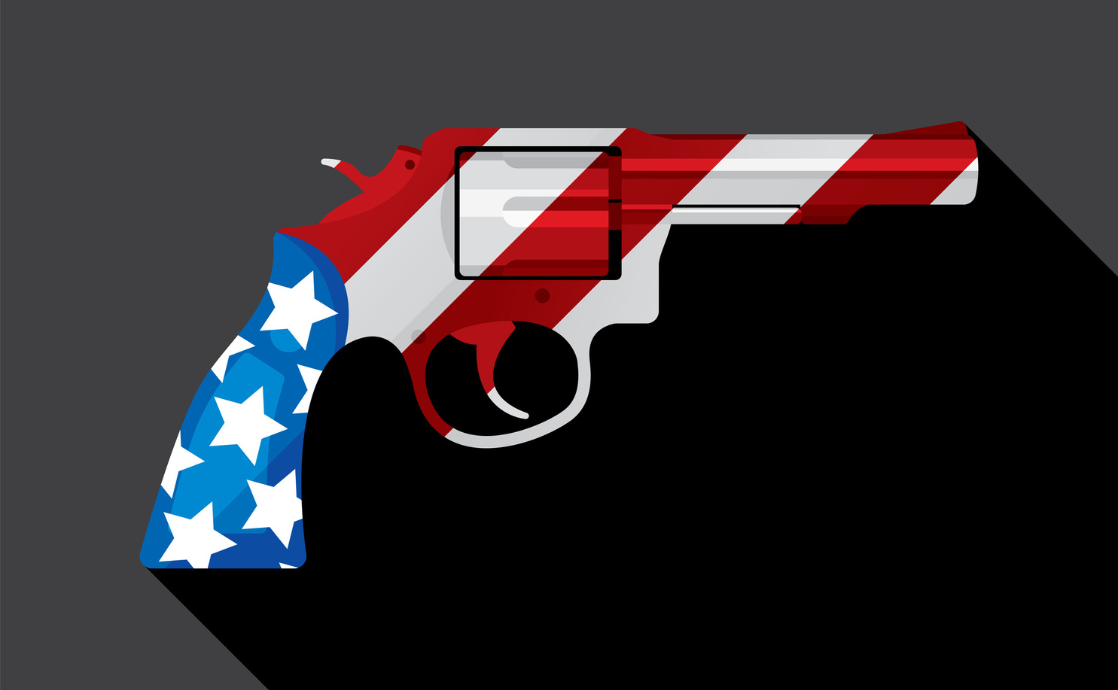In a nation renowned for its cultural diversities and rich historical fabric, the question “Why do Americans own so many guns?” underpins various philosophical, sociopolitical, and psychological dimensions that merit a thorough exploration. This inquiry not only encapsulates the American ethos but also invokes a playful yet profound challenge to delve into the implications of firearm ownership. Is it a manifestation of a deeply rooted conviction in personal liberty, or does it hint at broader societal dilemmas? This article endeavors to dissect the multilayered narrative surrounding gun ownership in the United States through the lens of Bahá’í teachings.
The foundational Bahá’í principle of the oneness of humanity posits that every individual is part of a greater collective. This belief invites us to contemplate how individual actions, such as gun ownership, reverberate across society. The sheer volume of firearms—estimated to exceed 393 million—raises a pivotal question: does this burgeoning proliferation foster unity or exacerbate division? The Bahá’í Faith emphasizes constructive discourse and mutual understanding, advocating for solutions that promote peace and solidarity rather than division rooted in fear or mistrust.
Historically, the right to bear arms is enshrined in the Second Amendment of the U.S. Constitution. This legal framework reflects early American ideals centered on self-governance, autonomy, and resistance against oppression. In contemplating the Bahá’í teachings that advocate for justice and equity, one can argue that the persistent attachment to this right symbolizes an ongoing struggle to safeguard personal liberties against perceived encroachments. However, unlike the founders of the nation, contemporary society grapples with the implications of gun ownership in an era marked by rampant violence and societal fragmentation.
Psychologically, the allure of firearms can often be linked to notions of power and security. For many, the possession of a gun is synonymous with safety—a tangible shield against both external threats and internal anxieties. The Bahá’í Faith emphasizes the importance of collective security through unity rather than individual fortification. It challenges the perception that personal possessions can confer safety, urging individuals to cultivate resilience through community collaboration. True security, as articulated by Bahá’í principles, arises from harmonious relationships, constructed on trust, dialogue, and shared values.
Moreover, the socio-economic landscape of the United States contributes significantly to the gun ownership phenomenon. The pervasive undercurrent of inequality fosters an environment where some may resort to gun ownership as a form of protection in economically disadvantaged neighborhoods. This reality raises profound questions: How can we reconcile the necessity for security with the imperative of addressing systemic inequities? Bahá’í teachings espouse the need for a just and equitable society, advocating for measures that alleviate poverty while simultaneously addressing the anxieties that lead to an arms-oriented culture.
Gun culture in America is also steeped in a complex interplay of identity formation and societal narratives. The celebration of individualism is often juxtaposed with a collective responsibility to foster a peaceful community. Bahá’í principles emphasize the importance of constructing a balanced identity—one that recognizes personal rights while nurturing communal obligations. The challenge lies in creating an environment where individuals can feel secure without resorting to firearms, thereby fostering a culture that prioritizes collective well-being over individual defiance.
Significantly, the discourse surrounding gun ownership introduces the notion of personal agency. Yet while individuals are entitled to make choices regarding their possessions, the Bahá’í perspective encourages individuals to reflect upon the broader impact of those choices on society. The dichotomy between individual rights and societal responsibilities offers a fertile ground for discussion. How can personal ownership of guns be harmonized with the goal of community safety? Reflecting upon the Bahá’í teachings of moderation and balance provides a potential pathway to navigate this tension.
Furthermore, the manifestations of gun ownership bring to light the necessity for educational initiatives that promote responsible usage. The Bahá’í community advocates for the elevation of humanity through education, a principle that can effectively be translated into programs aimed at responsible gun ownership. Educational frameworks should encompass not just the mechanics of handling firearms but also the ethical and moral considerations that accompany such responsibility. By fostering dialogue around these concepts, communities can cultivate a sense of accountability that transcends individual desires.
As we conclude this exploration, it becomes apparent that the question of why Americans own so many guns is intrinsically linked to deeper philosophical inquiries about liberty, security, identity, and communal responsibility. The interplay of these elements serves as a microcosm for broader societal challenges. The Bahá’í teachings encourage humanity to reflect on its actions and consider their implications for collective harmony. In a world where the possession of firearms often symbolizes division, the call for unity and understanding resonates more profoundly than ever.
Ultimately, the dialogue surrounding gun ownership in America invites individuals to engage in critical self-reflection and community discourse. It challenges them to consider not merely the implications of their rights but how these rights can coexist with a vision for a peaceful, equitable society. Through the lens of Bahá’í teachings, there emerges an urgent invitation to pursue a future where security is derived from unity, compassion, and a profound recognition of our shared humanity.
